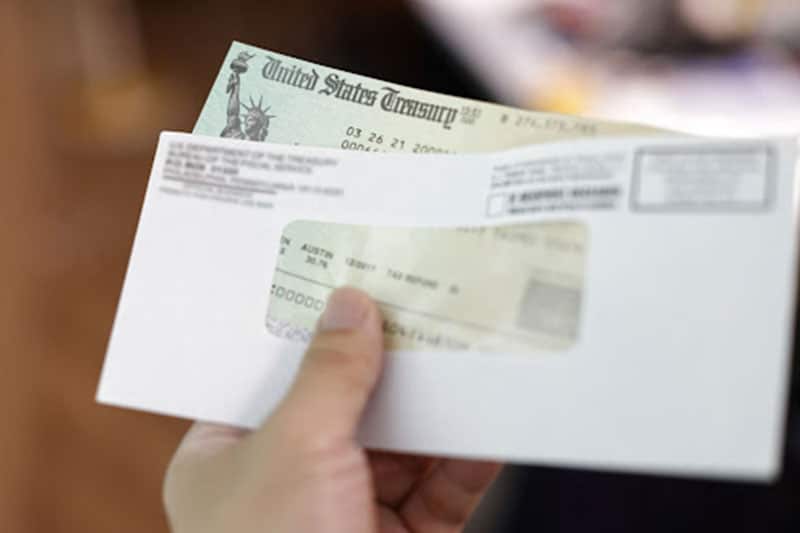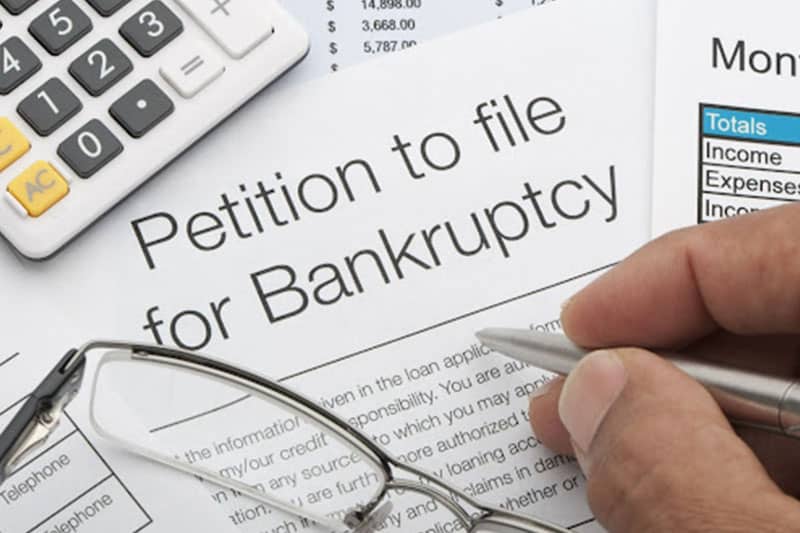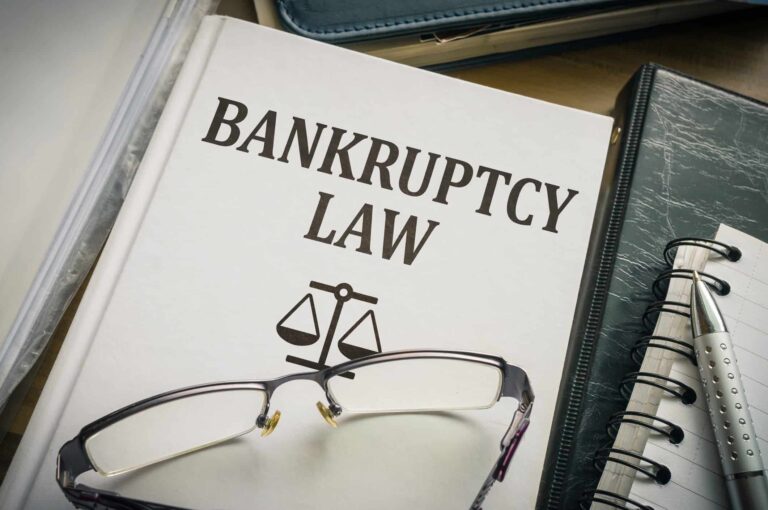Will I Lose My Tax Refund If I File Bankruptcy?

Many look forward to their tax return every year as an opportunity to pay off a little debt or make necessary purchases. But what happens to your tax refund if you file for bankruptcy? While a bankruptcy trustee may require you to hand over your tax return, chapter 7 bankruptcy allows most people to claim their refund. This is not the case for chapter 13 filings, which often require surrendering one’s yearly tax refund as part of the standard repayment terms. The type of bankruptcy you file can determine whether you can keep your tax refund. Follow along below to find out what happens to your tax refund while filing for bankruptcy.
Know your jurisdiction
The requirement for chapter 13 filers to hand over their tax return varies from place to place. In some locations, handing over your tax refund is non-routine. A local bankruptcy attorney can help you understand the tax return requirements of chapter 13 filings in your area.
Keep your trustee informed
If you receive a more significant refund than you claimed during filing, it is possible that the nonexempt amount could be forfeited. By keeping your bankruptcy trustee fully aware of your tax return situation, you can often claim the extra amount exempt by amending your payment schedule.
File your taxes
To increase your chances of keeping the entire tax refund, be sure to prepare and file your taxes promptly. Your bankruptcy trustee will include your dutiful tax filing as part of the bankruptcy process.
Be sure to claim an exemption
A bankruptcy trustee can request that the IRS or FTB turn over your tax refund directly to them. For chapter 7 bankruptcy cases, include a tax refund exemption in your filing.
Keep in mind that tax refunds are an asset
When filing a bankruptcy case, anticipated tax returns must be listed on Schedule B and claimed exempt on Schedule C. If you fail to list expected tax refunds, they are susceptible to being claimed by your bankruptcy trustee. A bankruptcy attorney specializes in helping you prepare your filing wholly and accurately.
What is the difference between a Chapter 7 and Chapter 13 bankruptcy?

When looking to file bankruptcy as an individual, your choices will be between a Chapter 7 and a Chapter 13 bankruptcy. However, if you’ve never filed for bankruptcy before, you may not have even been aware that there is more than one kind. Whether you file for a Chapter 7 or Chapter 13 bankruptcy will depend on the income you earn and on your assets. When determining which form of bankruptcy is best for you, consult with a professional attorney for bankruptcy to understand the differences and decide which form of bankruptcy is most beneficial to you.
Chapter 7 Bankruptcy
More than half of Americans file for Chapter 7 bankruptcy, one of the most frequent forms of bankruptcy filings. Once a Chapter 7 bankruptcy is filed and completed, a good portion of the debt that you owe is erased. This form of bankruptcy is an excellent way to “start over” and clean the slate of owed debt. The process for a Chapter 7 bankruptcy requires the filer to turn over all of their assets. These assets will then be used to repay as much debt as possible. Filing a Chapter 7 bankruptcy is popular because it is relatively quick and can be finished much faster than other forms of bankruptcy.
Chapter 13 Bankruptcy
Chapter 13 bankruptcy is the second option for individual filers and is usually filed by those with a significant and steady income. A Chapter 13 bankruptcy allows the filer to maintain specific assets such as a car, a home, and more. While you get to keep some of your assets under a Chapter 13 bankruptcy, your income will be garnished and put toward a court-approved repayment plan. Essentially, you will be able to keep whatever revenue or assets are necessary for survival and continuous money-making. The rest of the earned non-essential income will be seized and used to repay your debts via a repayment plan over several years.
Unsure of which kind of bankruptcy to file? Have all your questions answered with a free consultation with a Bankruptcy Attorney.
Tax Refunds and Chapter 7 Bankruptcy
Generally, in either a Chapter 7 or Chapter 13 bankruptcy, any form of tax refund is considered excess finances; they are usually nonexempt funds that will be seized to repay debts. However, there are a few ways to possibly be able to hold on to your tax refund when it comes to filing for Chapter 7 bankruptcy.
Spend your tax refund before filing for Chapter 7
If you spend your tax refund before filing for Chapter 7, your tax refund is still considered a part of your bankruptcy estate. However, if you received your tax refund before filing for Chapter 7 and spent the money on car repairs, food, rent, or other essential items or services, that money will not be required to be paid back. If you use your tax refund on luxury or non-essential items, you will be required to give the item back.
Adjust your tax withholdings
If you know that you will be filing for Chapter 7 bankruptcy, adjusting your tax withholdings can make it so that you do not receive a tax return. When you change your tax withholdings to only take out what is owed to the IRS, you erase the need for a tax return. Without a tax return, you will not have to give up your return under Chapter 7.
Use a bankruptcy exemption for a future tax refund
Several states have bankruptcy exemptions that can be used to keep certain finances, including your tax refund. To better understand bankruptcy exemptions that could be available to you, consult with a lawyer bankruptcy near me and check your state’s particular exemptions.
Chapter 13 Tax Refund Exemptions
Under a Chapter 13 bankruptcy filing, it can be difficult to be able to keep your tax return. Keeping your refund becomes increasingly challenging considering that a Chapter 13 bankruptcy will be ongoing for years. Each year that you are repaying your debts under a Chapter 13 filing, your tax refund can be seized by trustees to pay creditors. However, there are a couple of ways that you might be able to hold on to your tax refund when filing for Chapter 13 bankruptcy.
100% Plan
One of the benefits of Chapter 13 is that you will usually only have to pay a certain percentage of your owed debts rather than the entire sum. However, in some cases, you may have a plan that has you paying anywhere from 70% to 100% of the total debt you owe. In these cases, you may be entitled to keep your tax refund. While your refund is technically excess funds, you are already making payments for your whole debt amount. This situation may vary depending on the court, your trustee, and state regulations.
Chapter 13 Plan Modification
While in the process of repaying your debts during a Chapter 13 bankruptcy, you may be able to keep some or all of your tax refund by filing a Chapter 13 plan modification with the court. To have a plan modification approved, you will need to prove that the tax refund is necessary and essential. Some examples include catching up on late utility bills or paying maintenance on a car used for commuting to and from work.

For more information on tax refunds or for a cheap bankruptcy attorney in Las Vegas, contact DeLuca and Associates today.
Sources:
Milliken, M. (2021). Will Bankruptcy Affect Your Tax Refund?
O’Neill, C. (2022). Can I Keep My Tax Refund in Chapter 13 Bankruptcy?
O’Neill, C. (2022). Can I Keep My Tax Refund in Chapter 7 Bankruptcy?






